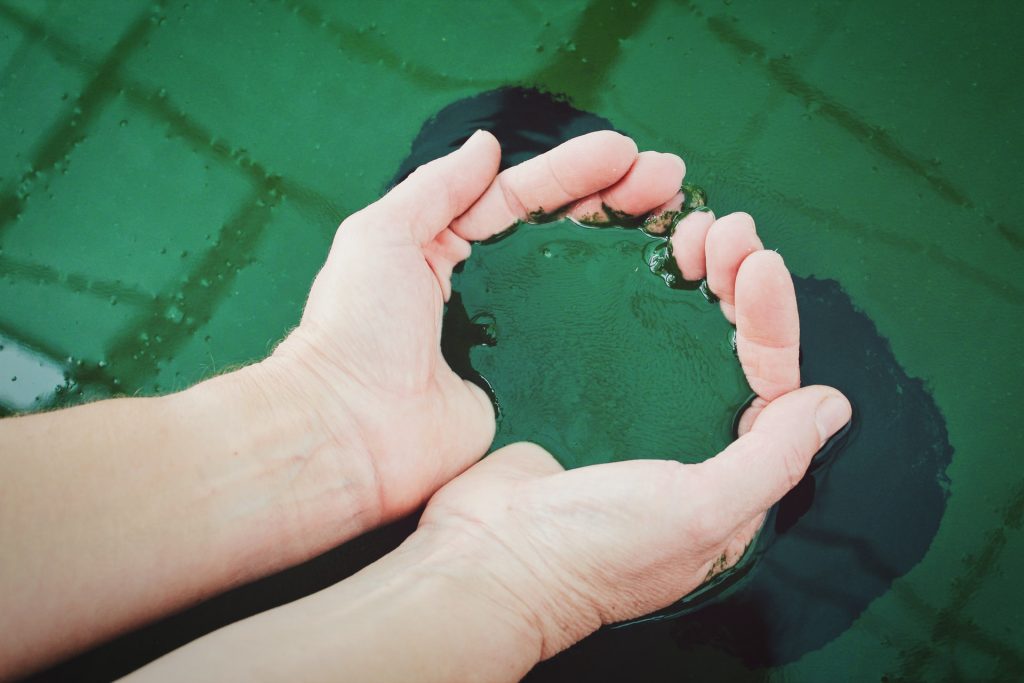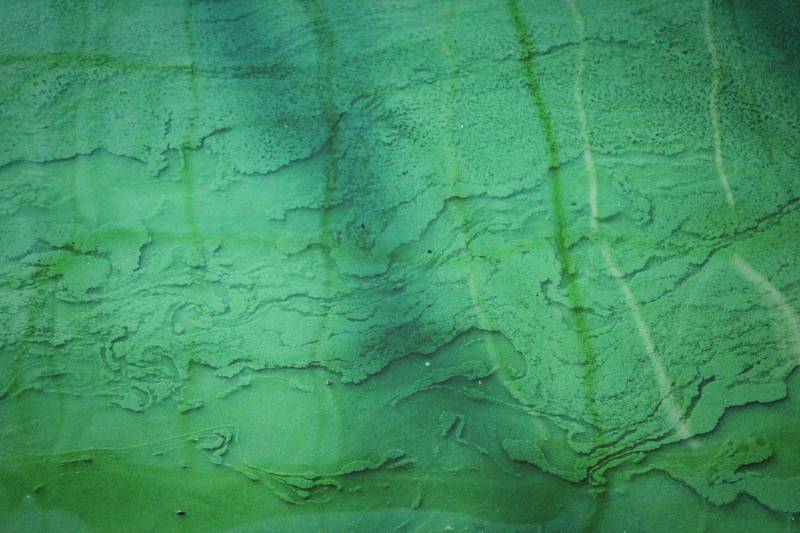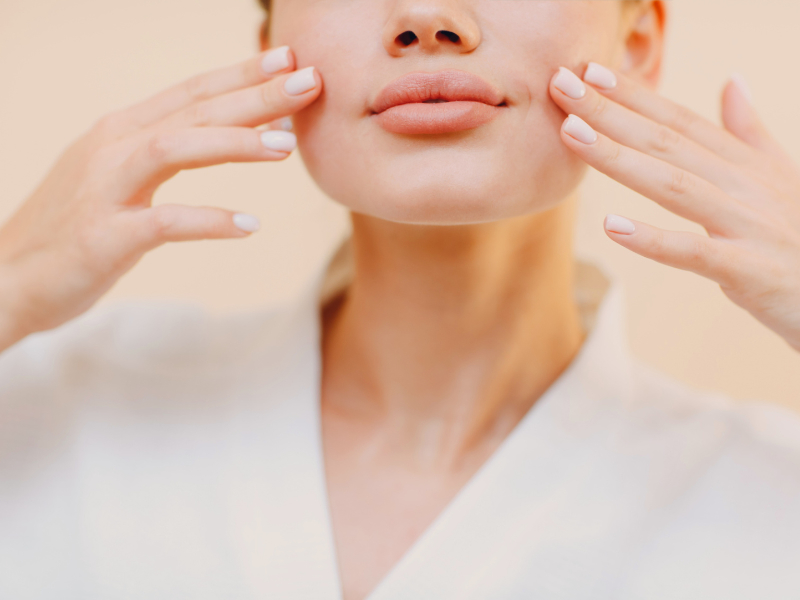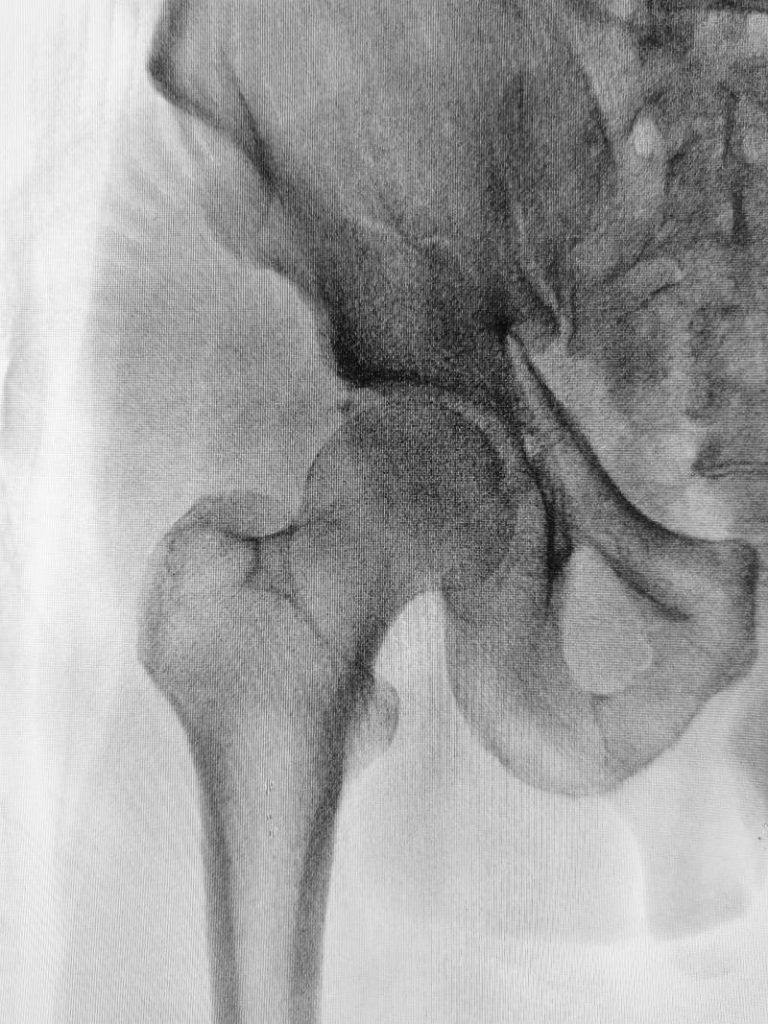Spirulina is a filamentous, spiral-shaped, water-based blue-green algae. It is a Cyanobacteria which means it can produce its energy directly from sunlight via photosynthesis. It is used as a food supplement because of its high nutritional content.
Below are some of the Health Benefits of Spirulina
High Nutritional value
It is rich in nutrition as it contains high amounts of antioxidants, such as β-carotene, phycocyanin (which gives it its blue-green color), Microelements (Potassium, Sodium, Calcium, Magnesium, Iron, Zinc), Vitamins (Tocopherols), Essential Amino acids, polyunsaturated fatty acids, especially у-linolenic acid and phenolic compounds.
A single teaspoon (7g) contains:
- Protein: 4g
- Thiamine (B1): 11% of the RDA
- Riboflavin (B2): 15% of the RDA
- Niacin (B3): 4% of the RDA
- Copper: 21% of the RDA
- Iron: 11% of the RDA
- Calcium: 8mg
- Fats: 1 gram
- 20 calories & 1.7g of digestible carbohydrates.
While taking spirulina and maintaining a balanced diet. It helps a person maintain a well-nourished lifestyle.
Rich in Omega fatty acids
Spirulina boosts Omega-3 and Omega-6 fatty acids. Omega fatty acids are essential for the body and have benefits such as reducing the risk of cardiovascular diseases, reducing the risk of blood clotting as Omega 3 prevents clumping of platelets, lowers triglyceride levels, raises HDL cholesterol, and potentially lower blood pressure.
Antioxidant and Anti-inflammatory Properties
C-phycocyanin is a biliprotein that is found in blue-green algae such as Spirulina.
Anti-inflammatory activity is due to the inhibition of the Proinflammatory cytokine production, induction of nitric oxide synthase, and cyclooxygenase-2 (COX-2) expression.
According to a research study done in 2009, the results showed that phycocyanin causes the inhibition of prostaglandin E (2) overproduction by suppressing nitric oxide synthase and COX2 induction. Also causes the attenuation of TNF- α formation and neutrophil infiltration into inflammatory sites.
Oxidative damage due to free radicals can harm DNA and cells. Spirulina has antioxidant sources which can protect against oxidative damage. Phycocyanin fights free radicals and inhibits the production of inflammatory signaling molecules.
Another research study investigated whether C-phycocyanin could protect against oxidative stress-mediated intracellular damage triggered by oxalate in MDCK cells. The results exhibited that oxalate-induced cells show markedly increased Reactive oxygen species levels that were decreased significantly by pretreatment with C-phycocyanin. It further showed pretreatment with C-phycocyanin conferred significant protection from mitochondrial membrane permeability and increased ATP production. Cells treated with C-phycocyanin decreased the expression of phosphorylated JNK/SAPK and ERK1/2. They concluded that C-phycocyanin could be used as a potential free radical-scavenging therapy against oxidative stress diseases including Urolithiasis.
Furthermore, phycocyanin also inhibits microsomal lipid peroxidation induced by Fe (+2)- ascorbic acid or free radical initiator AAHP. It reduces edema, histamine release, myeloperoxidase activity, levels of prostaglandin E2 and Leukotriene B4 in the inflamed tissues.
Spirulina provides a source of у-linolenic acid which is involved in the production of prostaglandins, leukotrienes, and thromboxane’s that are involved in immunological, inflammatory responses.
In conclusion, research studies have shown positive results in its contribution to being an antioxidant, anti-inflammatory, and has neuroprotective effects.

Lower LDL and Triglyceride Levels
Low-density lipoprotein is called the ‘bad’ cholesterol. Too much LDL can potentially cause a buildup of plaque and cause atherosclerosis, leading to Heart attack and stroke.
A prospective study was performed in 2013, in which 52 adults (32 men and 20 women) who were recently diagnosed with dyslipidemia consumed 1g of Spirulina per day for 12 weeks. Their lipid profile, systolic & diastolic blood pressure, weight, and BMI were recorded. They concluded at the end of the 3-month investigation, mean levels of triglycerides, LDL, total cholesterol were significantly decreased. Spirulina supplementation of 1g daily has tremendous effects on reducing cholesterol levels and potentially increasing HDL levels.
Statins have been used as a therapy to decrease total cholesterol levels in patients with hypercholesterolemia, however, they pose side effects such as hepatotoxicity and myalgia.
Weight loss
Generally, people lose weight with a low-calorie intake. Spirulina has a high nutritional profile and contains low calories. Studies show it may aid in weight management and improve BMI.
Hepatoprotective in Non-alcoholic fatty liver disease
Non-alcoholic fatty liver disease is a condition in which there is fatty infiltration of Hepatocytes. It may eventually progress to liver cirrhosis and Hepatocellular carcinoma. Independent of alcohol use. Causes include Obesity, Metabolic Syndrome, Type 2 Diabetes.
A study that included 15 adults with Non-alcoholic fatty liver disease were orally supplemented with 6g of Spirulina per day for six months. At the end of the 6-month trial, mean levels of aspartate aminotransferase, alanine aminotransferase, gamma-glutamyltransferase, triglycerides, LDL, total cholesterol were significantly reduced. HDL and hemoglobin were increased. Spirulina has beneficial metabolic effects and improves the quality of life.
Blood sugar control
Diabetes is a chronic disease that occurs when either the pancreas does not produce enough insulin (Type 1) or when the body cannot effectively use the insulin it produces (Type 2). Insulin is a hormone produced from the pancreas that regulated blood sugar levels.
Cases of Diabetes have increased in recent years.
Type 2 diabetes (non-insulin-dependent) is caused due to increased resistance to insulin which causes progressive pancreatic β-cell failure. It is mainly caused a result of excess body weight, poor diet, and physical inactivity.
Hyperglycemia (increased blood sugar) is common in those who have poorly controlled diabetes. Overtime could lead to serious complications such as strokes, increased risk of heart attacks, diabetic neuropathy (nerve damage), leading to foot ulcers, Diabetic retinopathy, Chronic Kidney disease.
There are no modern medical drugs that can cure Diabetes Mellitus. A study performed in 2018 concluded that spirulina is effective in inhibiting hyperglycemia and oxidative stress induced by diabetes and can help prevent diabetic complications.
2 grams of spirulina a day can significantly reduce fasting blood glucose and postprandial blood glucose levels. HbA1c levels were also decreased.
Blood Pressure control
High blood pressure is when the blood flowing through your blood vessels is consistently high.
They say that high blood pressure is a silent killer as most of the time there are no obvious signs or symptoms. If left untreated, it could cause significant side effects such as heart attacks, stroke, kidney disease.
Results show that Spirula induces a tone-related increase in the release of nitric oxide by the endothelium and an increase in the release of vasodilating COX-dependent metabolite of arachidonic acid and a decrease in the release of vasoconstricting eicosanoid by the endothelium.
Nitric oxide is a vasodilator that relaxes blood vessels. It increases blood flow and lowers blood pressure.
Support your Immune system
High vitamins and minerals that are packed in Spirulina maintain a healthy immune system. Help boost the production of White blood cells and Antibodies.
Help Improve anemia in Elderly
Anemia is commonly found in Elderly patients which leads to fatigue and weakness. Anemia can be secondary to multiple factors including problems with red blood cell production and destruction of even blood loss.
Spirulina modulates the production of cytokines by peripheral mononuclear cells, due to its rich source of flavonoids and sulfalipids.
Studies have shown that Spirulina daily supplementation, regardless of another dietary intake may prove beneficial for major variables that are associated with anemia.
Improves symptoms of Allergic Rhinitis
Allergic rhinitis is inflammation of the nasal passageways due to allergens such as pollen, dust, animal hair.
Symptoms include sneezing, nasal congestion, nasal itching, and rhinorrhea.
There is evidence suggesting that Spirulina significantly improved symptoms and physical findings of allergic rhinitis such as nasal discharge, sneezing, itching, and nasal congestion.
Muscle strength and Endurance Benefits
Muscle fatigue is due to exercise-induced oxidative damage. Athletes target certain foods to help minimize oxidative damage.
A double-blind study performed showed that spirulina supplementation induced an increase in exercise performance, fat oxidation, and Reduced Glutathione concentration.
Other benefits include a preventive effect of the skeletal muscle damage that led to the postponement of exhaustion time during an all-out exercise.
Anticancer properties
Spirulina is well known for its anti-inflammatory and anti-cancerous properties. It is also known as an immune booster by stimulating natural killer (NK) cells and co-operative action of IL-12 and IL-18 for NK-mediated IFN gamma production. Spirulina hinders the growth of oral cancer. Reports also show that a unique polysaccharide of spirulina enhances cell nucleus enzyme activity and potentiate DNA repair.
In another study, Spirulina has shown chemopreventive activity (1g/day for 12 months) in reversing oral leukoplakia in pan tobacco chewers in Kerala, India. Complete regression of lesions was observed in 20 of 44 subjects.
More research is needed in different populations for further evaluation.
Maintain Eye and Oral health
Spirulina contains a high amount of Zeaxanthin, which is a plant pigment that reduces the risks of cataracts and age-related macular degeneration. Protection of retinal photoreceptors from photostress in the retina has been shown. Spirulina is also rich in Carotenoids which are beneficial for the eye and immune health. Common carotenoids (Lutein and Zeaxanthin) are found in the retina.
Spirulina mouthwashes have been shown to reduce gingivitis, bad breath, and dental plaques.
Skin benefits
Spirulina boosts the overall health and radiant appearance of the skin. Due to its richness in nutrients, vitamins, fatty acids, and essential amino acids, it can potentially serve as a good treatment for the skin.
Helps prevent the buildup of acne and swelling, reduces inflammation, tones the skin, and encourages cell turnover to promote a good complexion.
Amino acids that are present such as lysine and proline are beneficial as they are needed for collagen synthesis.
Spirulina may also increase growth factors in dermal fibroblast cells needed for collagen synthesis.
Hair benefits
Spirulina promotes hair growth, fights dandruff, and cleanses the scalp.
Due to its antimicrobial properties, and presence of zinc, it helps fight dandruff.
Mental health support
The theory behind this is spirulina is a source of Tryptophan. Tryptophan is an essential amino acid and is a precursor in serotonin synthesis.
Serotonin is a neurotransmitter that acts as a mood stabilizer. Decreased levels of serotonin are seen in patients with anxiety and depression.
However, more research studies are needed to know the role of spirulina and the support of mental health.
Inhibition of viral replication
Influenza is a common respiratory disease. It has high mortality in the young and elderly and those that are chronically ill. The influenza virus causes outbreaks every season as well as pandemics. Influenza A is the only type to cause pandemics. The strains are classified according to hemagglutinin and neuraminidase surface protein.
A study performed concluded that Spirulina extract inhibited viral formation and reduction of viral replication in cell cultures. The exact mechanism discovered was that Spirulina disrupted the hemagglutinin of viral particles to erythrocytes inhibiting the infection process.
Aid in Chronic Arsenic Poisoning
Arsenic poisoning is a medical condition that occurs when there are elevated levels of Arsenic in the bloodstream. The most common reason is drinking contaminated water. Symptoms include vomiting, abdominal pain, encephalopathy, watery diarrhea.
A randomized placebo-controlled study was performed to evaluate the effectiveness of spirulina extract and Zinc for the treatment of Chronic Arsenic poisoning. They concluded that spirulina extract (250mg) plus zinc (2mg) twice daily for 16 weeks can be useful for treating chronic arsenic poisoning with melanosis and keratosis.
Spirulina and Chlorella can be used together. Due to both their high nutritional profiles, it is a good way to boost your immunity. These two super foods boost energy and are natural detox supplements. It is highly recommended to add them both to your diet. Click here to view Biotex’s Spirulina + Chlorella!
References
Shih CM, Cheng SN, Wong CS, Kuo YL, Chou TC. Antiinflammatory and antihyperalgesic activity of C-phycocyanin. Anesth Analg. 2009 Apr;108(4):1303-10. doi: 10.1213/ane.0b013e318193e919. PMID: 19299804.
Farooq SM, Boppana NB, Devarajan A, Sekaran SD, Shankar EM, Li C, Gopal K, Bakar SA, Karthik HS, Ebrahim AS. C-phycocyanin confers protection against oxalate-mediated oxidative stress and mitochondrial dysfunctions in MDCK cells. PLoS One. 2014 Apr 1;9(4):e93056. doi: 10.1371/journal.pone.0093056. Erratum in: PLoS One. 2014;9(7):e103361. Asokan, Devarajan [corrected to Devarajan, Asokan]. PMID: 24691130; PMCID: PMC3972226.
Mazokopakis EE, Starakis IK, Papadomanolaki MG, Mavroeidi NG, Ganotakis ES. The hypolipidaemic effects of Spirulina (Arthrospira platensis) supplementation in a Cretan population: a prospective study. J Sci Food Agric. 2014 Feb;94(3):432-7. doi: 10.1002/jsfa.6261. Epub 2013 Jul 10. PMID: 23754631.
Mazokopakis EE, Papadomanolaki MG, Fousteris AA, Kotsiris DA, Lampadakis IM, Ganotakis ES. The hepatoprotective and hypolipidemic effects of Spirulina (Arthrospira platensis) supplementation in a Cretan population with non-alcoholic fatty liver disease: a prospective pilot study. Ann Gastroenterol. 2014;27(4):387-394. PMID: 25331487; PMCID: PMC4188938.
Gargouri M, Hamed H, Akrouti A, Dauvergne X, Magné C, El Feki A. Effects of Spirulina platensis on lipid peroxidation, antioxidant defenses, and tissue damage in the kidney of alloxan-induced diabetic rats. Appl Physiol Nutr Metab. 2018 Apr;43(4):345-354. doi: 10.1139/apnm-2017-0461. Epub 2017 Nov 1. PMID: 29091744.
Parikh P, Mani U, Iyer U. Role of Spirulina in the Control of Glycemia and Lipidemia in Type 2 Diabetes Mellitus. J Med Food. 2001 Winter;4(4):193-199. doi: 10.1089/10966200152744463. PMID: 12639401.
Akao Y, Ebihara T, Masuda H, Saeki Y, Akazawa T, Hazeki K, Hazeki O, Matsumoto M, Seya T. Enhancement of antitumor natural killer cell activation by orally administered Spirulina extract in mice. Cancer Sci. 2009 Aug;100(8):1494-501. doi: 10.1111/j.1349-7006.2009.01188.x. Epub 2009 May 6. PMID: 19432881.
Mathew B, Sankaranarayanan R, Nair PP, Varghese C, Somanathan T, Amma BP, Amma NS, Nair MK. Evaluation of chemoprevention of oral cancer with Spirulina fusiformis. Nutr Cancer. 1995;24(2):197-202. doi: 10.1080/01635589509514407. PMID: 8584455.
Kalafati M, Jamurtas AZ, Nikolaidis MG, Paschalis V, Theodorou AA, Sakellariou GK, Koutedakis Y, Kouretas D. Ergogenic and antioxidant effects of spirulina supplementation in humans. Med Sci Sports Exerc. 2010 Jan;42(1):142-51. doi: 10.1249/MSS.0b013e3181ac7a45. PMID: 20010119.
Lu HK, Hsieh CC, Hsu JJ, Yang YK, Chou HN. Preventive effects of Spirulina platensis on skeletal muscle damage under exercise-induced oxidative stress. Eur J Appl Physiol. 2006 Sep;98(2):220-6. doi: 10.1007/s00421-006-0263-0. Epub 2006 Aug 30. PMID: 16944194.
Chen YH, Chang GK, Kuo SM, Huang SY, Hu IC, Lo YL, Shih SR. Well-tolerated Spirulina extract inhibits influenza virus replication and reduces virus-induced mortality. Sci Rep. 2016 Apr 12;6:24253. doi: 10.1038/srep24253. PMID: 27067133; PMCID: PMC4828654.
Misbahuddin M, Islam AZ, Khandker S, Ifthaker-Al-Mahmud, Islam N, Anjumanara. Efficacy of spirulina extract plus zinc in patients of chronic arsenic poisoning: a randomized placebo-controlled study. Clin Toxicol (Phila). 2006;44(2):135-41. doi: 10.1080/15563650500514400. PMID: 16615668.
Lordan, S., Ross, R. P., & Stanton, C. (2011). Marine bioactives as functional food ingredients: potential to reduce the incidence of chronic diseases. Marine drugs, 9(6), 1056–1100. https://doi.org/10.3390/md9061056




